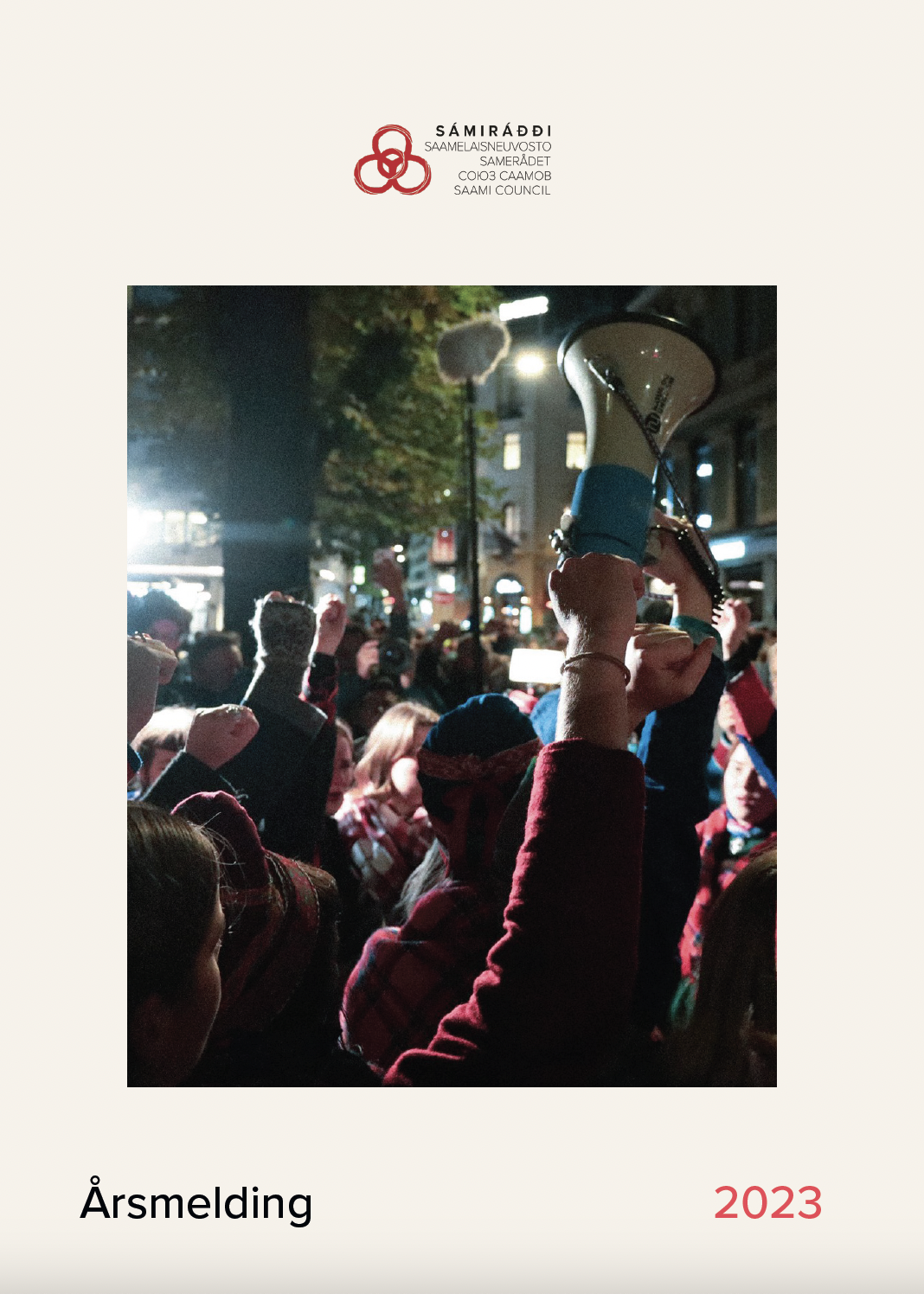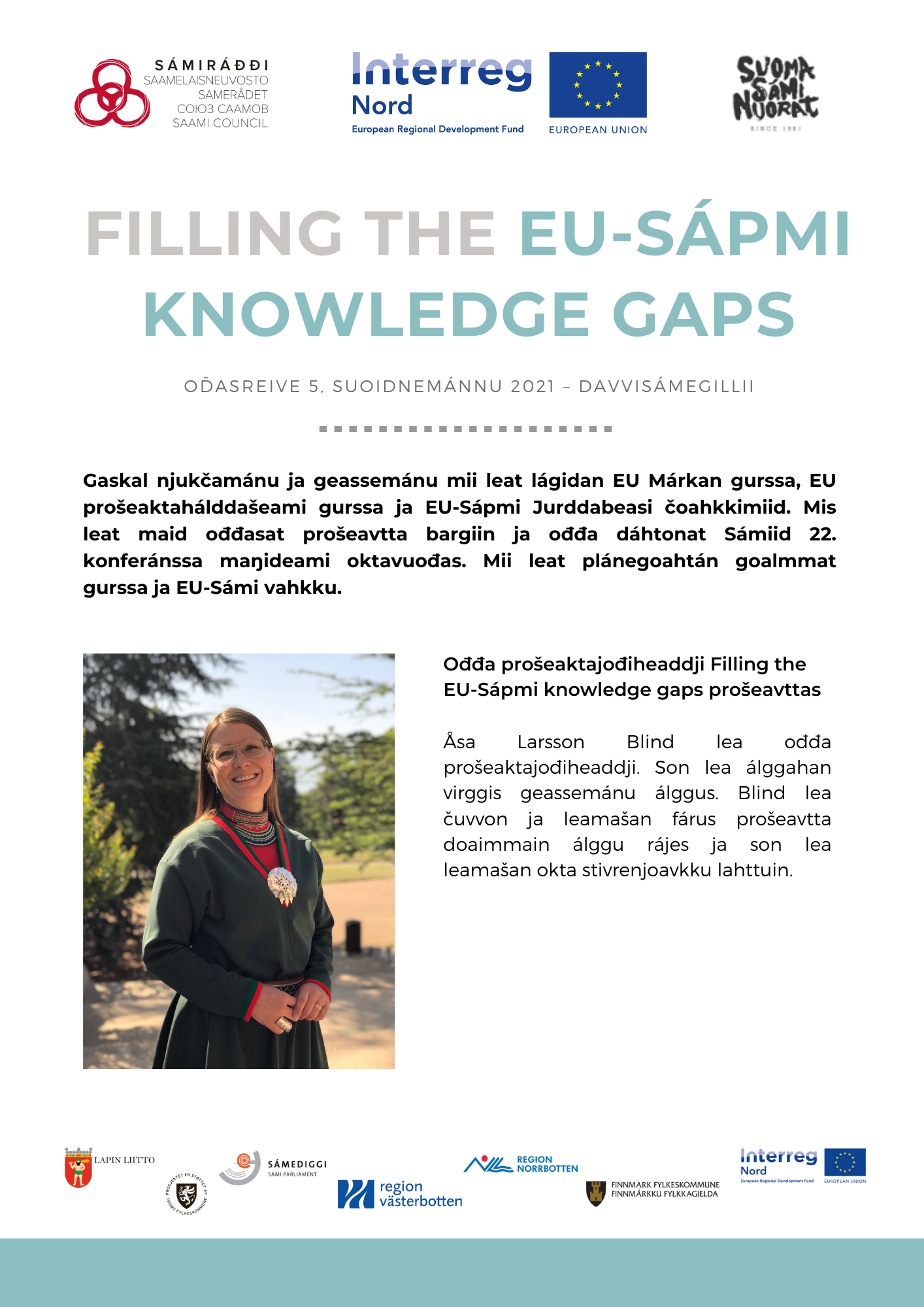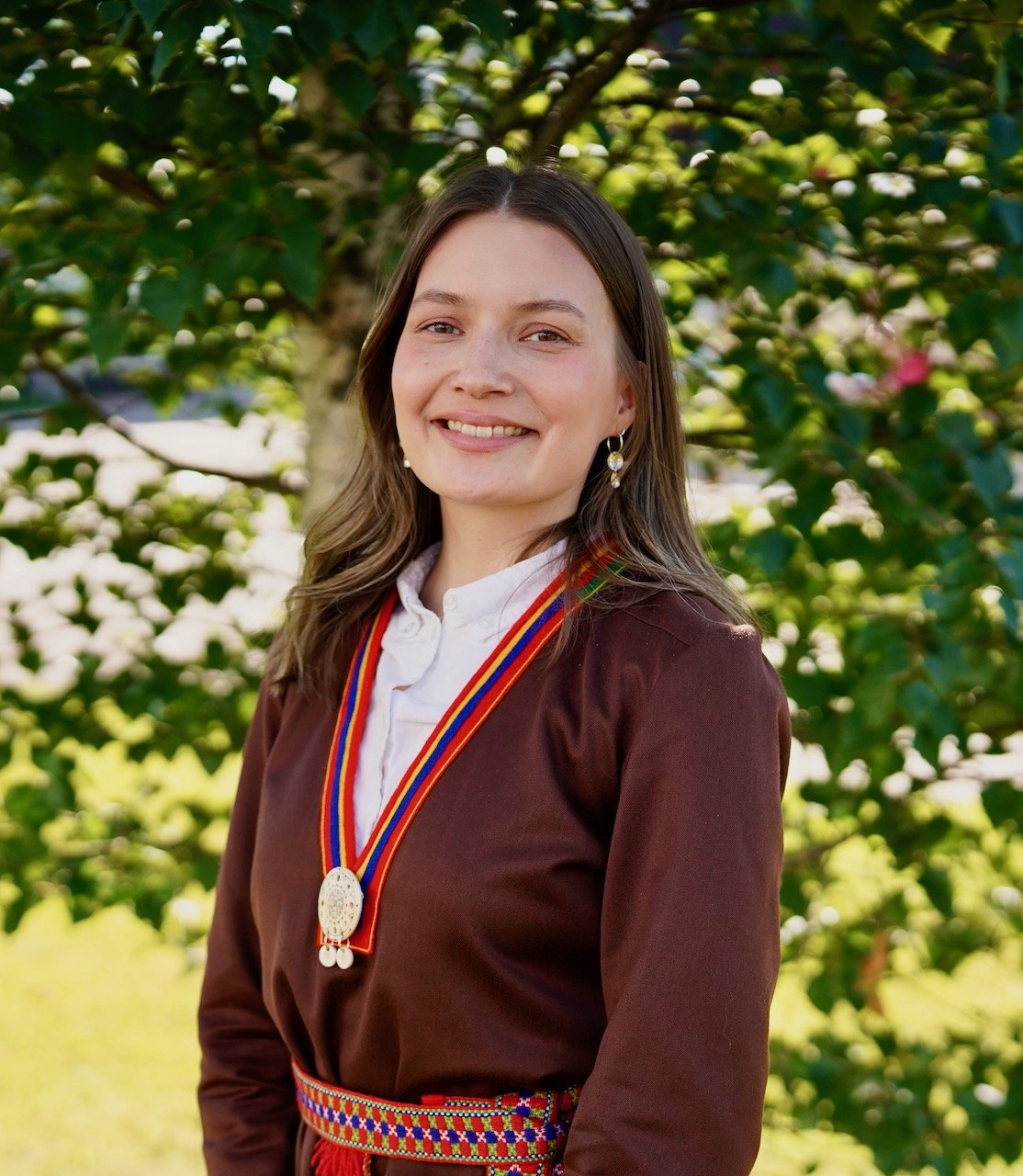Photo: Carl-Johan Utsi
EU Unit
“The Saami peoples as indigenous peoples within the European Union require the member states to adopt a common policy on Saami issues, based on recognized national and international legal and political principles on the rights of indigenous peoples”
The Saami Council's EU Unit was formally established in January 2019. The Head of Unit is Elle Merete Omma.
The Saami Conference stated already in 1992 that the position of the Sámi in the EU must be taken into account in the EU membership of the nation-states. Sweden and Finland became EU members in 1995 while Norway voted against an EU membership in 1994. As part of the Treaty between the Republic of Finland, the Kingdom of Sweden, and Member states of the European Union concerning the accession of Finland and Sweden to the European Union, a separate protocol on the Sámi people was negotiated (Protocol No 3 on the Sami people). The Sami Protocol is an exception to the prohibition of discrimination against Sámi under the four EU freedoms.
The EU Unit aims to:
Inform policy development in the EU at an early stage and contribute with analyses to Sámi institutions in areas that are important for Sápmi's social and business life
Monitor and influence in EU processes that are of importance for cohesion policy and regional development in Sápmi
Work to establish sustainable structures for consultation and involvement of Sámi interests in EU decision-making processes
Attend EU Indigenous Peoples Dialogue meetings and follow-up of the EU Arctic Forum and other meetings that can contribute to better communication between the Sámi people and EU decision-makers
Work to increase competence building through
To increase the visibility of the Sámi people and to increase the understanding of Sápmi through, among other things, contributing to events, etc. for actors in the EU
Further develop EU competence in Sápmi to be able to make greater use of the scope of action within Norway, Sweden and Finland's agreements with the EU
Cooperate with other EU actors on knowledge development and dissemination of information
Participate actively in the Northern Dimension Forum, Northern Sparsely Populated Areas (NSPA) and other relevant networks
Work to ensure Sami participation in the EU programs, and preparation of the terms of the EU programs, etc.
Documents
Staff
Projects
WHY IS THERE A NEED FOR INCREASED COOPERATION WITH THE EU ON SAAMI ISSUES?
Sámi presence in Brussels secures Sámi rights in EU policy areas
Both the EU and the Sámi communities recognize the need for better protection of Sámi rights in various EU processes. Increased knowledge of the Sámi people will contribute to ensuring that the Sámi people’s views and rights are respected and promoted in the ongoing development of EU policies affecting the Sámi people’s way of life. Hence, a strong Sámi presence within the framework of the EU is an important premise for EU policy-shaping on all sectors that have an influence on Sámi people.
The EU contributes to the building of the Sámi community
Access for Sámi people to various EU programs is an important priority for the Saami Council. There are several reasons for that. Access to financing Sámi community building is a good thing in itself. This will create conditions for innovation and innovation in Sápmi. Solid and fair access to capital can help develop good projects for mature investment opportunities. One measure that must be implemented to achieve these objectives is that the conditions in the EU programs must be adapted to the peculiarities of Sámi peoples, taking into account that there are few own institutions in Sápmi that can be project owners, that Sápmi lacks equity, etc. In addition, strong Sámi participation in the EU's decision-making structure is a sensible way of promoting good regional policy, as regional and Saami policies often have similar objectives. Thus, strong Sámi participation in the EU program structure can help create growth and jobs in Sápmi.The EU as a tool for reducing border barriers in Sápmi
The Sámi people live in four countries both inside the EU and outside the EU and it is a priority for the Saami Council to reduce obstacles for the Sámi people to live as one people regardless of national borders. The EU is regarded as an important partner for the Sámi people to achieve this goal.


















